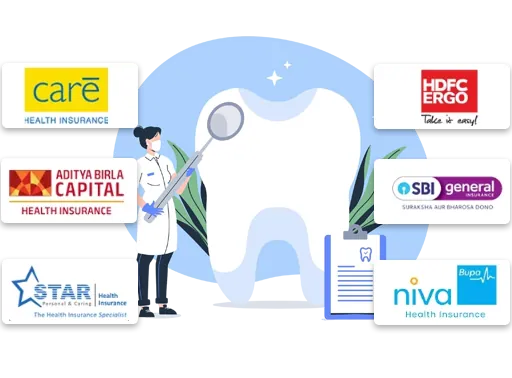Top-Up VS. Super Top-Up




Simran is an insurance expert with more than 4 years of experience in the industry. An expert with previous experience in BFSI, Ed-tech, and insurance, she proactively helps her readers stay on par with all the latest Insurance industry developments.
Reviewed By:

Anchita has over 6 years of experience in content marketing, insurance, and healthcare sectors. Her motto to make health and term insurance simple for our readers has proven to make insurance lingos simple and easy to understand by our readers.
Updated on Jul 02, 2025 6 min read
Difference between top-up and super top-up health insurance
While talking about health insurance policies, we often get insecure about what a health policy will cover or what it won't. But knowing the right strategy to have an extended safety net with health insurance is the assurance that we all need.
There are several ways to opt for the best health insurance policy among thousands available in the Indian insurance market. One of the key factors among all is opting for a base health policy either with a top-up plan or with a super top-up plan. Both of these plans act like an additional layer of protection for you and your loved ones.
But how confusing can it get while buying, if you don't know their separate features and benefits? Most people do not know the difference between a top-up and super top-up plan, which is a very common occurrence.
The motto of this article is to cover the doubts that you may have about top-up vs. super top-up health plans and which one will suit you the best. Read further to know in detail and clear your doubts.
What is top-up health insurance?
Top-up health insurance plans are simply the product that gives you an enhanced level of protection along with the base health insurance you already have. Top-up plans come into effect when the sum insured of your base policy gets exhausted and you need extended coverage for medical care.
What is super top-up health insurance?
Super top-up plans are the booster package for your base health insurance policy which comes with wide coverage benefits. Usually, it works the same as a top-up plan but comes with a higher sum insured and optimum policy benefits. Super top-ups get active when you already have finished your base policy's sum insured.
How do top-up and super top-up health insurance work?
Top-ups and super top-ups are an insurance product that adds value to your already existing health insurance policy by increasing its sum insured value. Both of these plans come with the compulsory deductible clause which you (the policyholder) need to pay before making a claim.
However, in the case of top-up plans, you can make a claim only once during the policy year. But when it comes to super top-up plans, you can make as many claims as you need up to the limit of your plan's sum insured.
Differences between top-up and super top-up health insurance policy
Let's make understanding the basic differences between top-up and super top-up policy easy for you with an example-
Suppose, Ankit and Sunil are two employees working in the same company. Both of them have health insurance policies worth an insured sum of INR 5 Lakhs which they feel is not adequate to cover their medical expenses. So, they decided to complement their base health insurance plans with a top-up and a super top-up respectively.
Now, Ankit has a top-up plan with a sum insured of INR 5 Lakhs and Sunil has a super top-up plan with a sum insured of INR 5 Lakhs. They have opted for a deductible limit of INR 2 Lakhs separately. Now we will inculcate how their health plans will impact their finances after making a claim, separately:-
Here are some of the key differences between top-up and super top-up insurance, related to the example:-
| Aspects | Top-up plans (For Anil) | Super top-up plans (For Sunil) |
| Basic health insurance plan (SI) | 5 L | 5 L |
| Additional top-up (SI) | 5 L | 5 L |
| Deductible amount | 2 L | 2 L |
| First claim (during the policy year) | 7 L | 7 L |
| Out-from-wallet expenses | NA | NA |
| Insurance provider pays (amount) | 7 L | 7 L |
| Second claim (during the same policy year) | 3 L | 3 L |
| Out-from-wallet expenses | 3 L | NA |
| Insurance provider pays (amount) | NA | 3 L |
*NA - Not Applicable
In reference to the above table, Ankit will receive only a one-time claim settlement benefit with a top-up plan. But, Sunil can claim multiple times during the policy year and get his policy benefits with a super top-up plan.
What should you buy: Super top-up vs. Top-up
Both of these plans are known to provide additional coverage benefits to you. But when it comes to the super top-up plan, it offers you several benefits than a top-up plan but it also has higher deductibles or extra premium charges.
On the other hand, top-up plans comparatively offer minimum coverage as it has lower deductibles and premium charges than a super top-up.
It depends on your requirement, whether you want a higher sum insured with super top-ups or a little sum insured with top-ups.
Inclusions and exclusions of top-up and super top-up policy
Check below the general inclusions and exclusions of a top-up and super top-up health plan:
Top-up health insurance
|
Super top-up health insurance
|
NOTE:- These inclusions and exclusions are based on general criteria that almost every health insurer provides with their plans. You must check wisely for the inclusions and exclusions of your specific top-up/super top-up insurance policy.
Things to check while buying top-ups and super top-ups
Keep these pointers in mind while buying a top-up health insurance and a super top-up health insurance:-
- Deductible limit:- Choosing deductible amount wisely will save you money and from getting worried about paying medical expenses out-of-pocket. Remember, this may also affect your premium amount.
- Sum insured:- Check the value of the sum insured offered with the plan as it should cover any high medical expenses. Choosing a higher sum insured or a/c your requirement is better in the long run.
- Coverage benefits:- The plan must cover general healthcare requirements as a base health policy. Go with a plan with wide coverage benefits including hospitalisation, consultation, medicines, and others.
- Premium charges:- An increment in deductibles can decrease the charges of your monthly premium. But choose a plan that has an affordable premium with a larger sum insured option.
Summing it up
The ever-emerging scenarios of COVID-19, inflation in healthcare costs, changing lifestyles, etc have made sure to give us a headache when it comes to medical emergencies. Amid all these challenges, it's important to rethink the way we plan for our health. One of the best parts to get secured in advance is buying a health insurance policy.
Sometimes, your standard medical insurance might not be enough to serve all the healthcare requirements. In these times of emergencies, you need to buy a health recharge plan like a top-up or super top-up plan which extends the value of your base sum insured with an affordable premium.
Do you need more information about the best top-up health insurance plans and super top-up health insurance plans? Reach out to our trusted advisors at PolicyX.
Consult for Personalized Insurance Advice

But how does it work?
Schedule a call with India’s number 1 trusted advisor with a 4.5+ rating on Google. We are not your average insurance agents. Our advisors are experts in their insurance knowledge and will give you the right information at the right time. The service is free of cost! Don’t worry, we won’t spam as we value your time.
Health Insurer Network Hospitals
Top-Up VS. Super Top-Up: FAQs
1. Is buying top-up good for a family floater plan?
Buying a top-up plan is always a wise decision to get optimum security for you and your loved ones. Choosing the high sum insured as a family floater plan is the reassurance of security for all the members in the same policy.
2. Should I buy a super top-up or a top-up plan?
If you have a base health policy but you need an extension with medical care, you should go with a super top-up plan as if offers additional and exclusive benefits.
3. Which is cheaper top-up or super top-up?
Top-up plans are usually cheaper than super top-ups because they provide less coverage benefits compared to super top-ups. And it usually has low deductibles with affordable premiums.
Health Insurance Companies
Know More About Health Insurance Companies
Share your Valuable Feedback
4.4
Rated by 2636 customers
Was the Information Helpful?
Select Your Rating
We would like to hear from you
Let us know about your experience or any feedback that might help us serve you better in future.


Written By: Simran Kaur Vij
Simran is an insurance expert with more than 4 years of experience in the industry. An expert with previous experience in BFSI, Ed-tech, and insurance, she proactively helps her readers stay on par with all the latest Insurance industry developments.




















Do you have any thoughts you’d like to share?